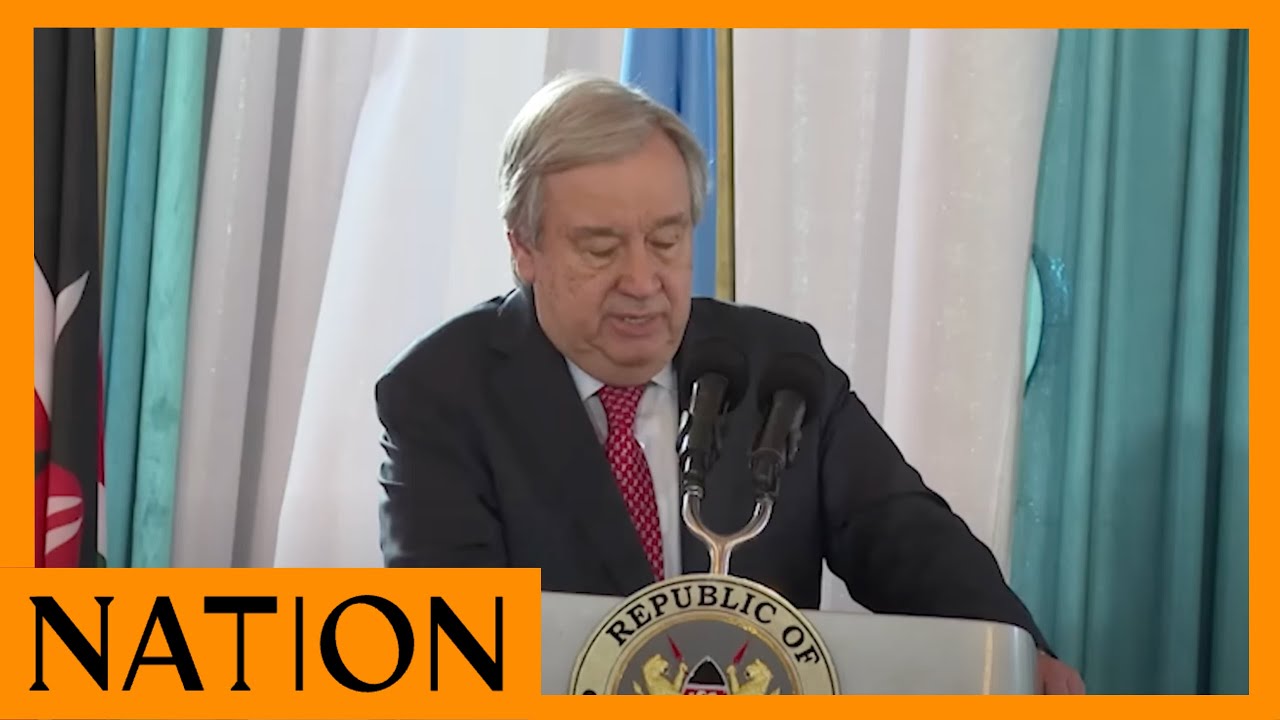United Nations Secretary-General Guterres’S Speech During His Visit To State House
Unleash Your Creative Genius with MuseMind: Your AI-Powered Content Creation Copilot. Try now! 🚀
Introduction
In his speech, the Secretary General of the United Nations addresses the double victimization of Africa due to colonialism and underrepresentation in global institutions. He emphasizes the need to address the inequalities that exist and provide opportunities for the global South to catch up. Additionally, he highlights climate change as a prime example of how Africa is disproportionately affected by the actions of developed countries. The Secretary General expresses the urgency to reduce emissions and redistribute resources to support the transition to a greener economy.
Climate Change and Africa
Africa, despite contributing minimally to climate change, bears the brunt of its impacts. The continent faces challenges such as floods, droughts, and other climate-related disasters. These affect not only the region's poverty and stability but also serve as catalysts for the rise of terrorist forces. The Secretary General acknowledges that climate change, while not the sole cause, accelerates other factors contributing to instability within Africa and other parts of the world.
Addressing Inequalities through Reform
The Secretary General stresses the need for serious reform to address the underrepresentation of African countries in global institutions such as the United Nations and Bretton Woods Institutions. He highlights the lack of African representation in the UN Security Council and calls for corrective measures. The Secretary General also advocates for a concerted effort to reform other international bodies that were created to manage the global economy. This, he argues, is crucial to correct the fundamental unfairness faced by African nations.
The Climate Solidarity Pact
Recognizing the urgent need to reduce emissions, the Secretary General proposes a climate solidarity pact. This pact aims to encourage both developed and emerging economies to assume more ambitious targets in reducing emissions. Developed countries would provide financial and technological support to emerging economies, enabling them to accelerate their transition to renewable energy and other sustainable practices. The Secretary General emphasizes that the responsibility lies with developed countries to take the lead in this endeavor.
The Need for Adaptation and Financial Support
Adaptation and financial support are essential components in addressing climate change. The Secretary General acknowledges that adaptation efforts still lack sufficient funding, with only half of climate finance dedicated to adaptation. He highlights the significance of loss and damage and hopes it will receive adequate attention before the next climate conference. The Secretary General emphasizes the urgency to resolve these issues, as they directly impact the lives and well-being of those most vulnerable to climate change.
Global Inequalities: People and Countries
The Secretary General reflects upon the dramatic inequalities that exist between individuals and countries. Looking back at his experience as the Prime Minister of Portugal and comparing it to the President of Kenya's situation, he recognizes the privilege and advantages that developed countries enjoy. Developed nations, buoyed by an international financial system biased in their favor, have greater access to resources and financial support. This creates an unfair playing field, as developing countries face greater challenges when seeking financing at higher interest rates.
The Case of Kenya
The Secretary General uses Kenya as a prime example of a country with immense leadership and a pivotal role in addressing regional conflicts. He commends Kenya's efforts in stabilizing Somalia, combating terrorism, and striving for peace in the Democratic Republic of Congo. Moreover, he highlights Kenya's commitment to finding solutions to the problems faced by South Sudan and Eritrea. The Secretary General acknowledges how Kenya, despite its limited resources, actively engages in diplomacy and plays an instrumental role in resolving conflicts.
Conclusion
In conclusion, the Secretary General's speech underscores the urgent need for reform to address the historical injustices faced by Africa and the global South. He emphasizes the importance of reducing emissions and providing financial and technological support to facilitate a transition to a greener economy. Furthermore, he calls for increased representation of African nations in global institutions, advocating for a fair and equitable international financial system. The Secretary General acknowledges Kenya's outstanding leadership and commitment to conflict resolution, showcasing the country as an example for others to follow. He concludes by pledging the United Nations' solidarity and support in the fight for global justice and equality.

Related Recaps
- Madley na praça- Mc's Alanzinho & Ryan MZK
- MLC Election Results Won't Reflect | on Entire Governing System | Minister Roja
- Icing Images Retailer of the Year Finalist - Please Vote 3 Times
- LOSER OUT! - Team Secret vs Gen.G - HIGHLIGHTS | VCT Pacific 2023 | VALORANT
- Nashville holds vigil for six victims of horrific school shooting